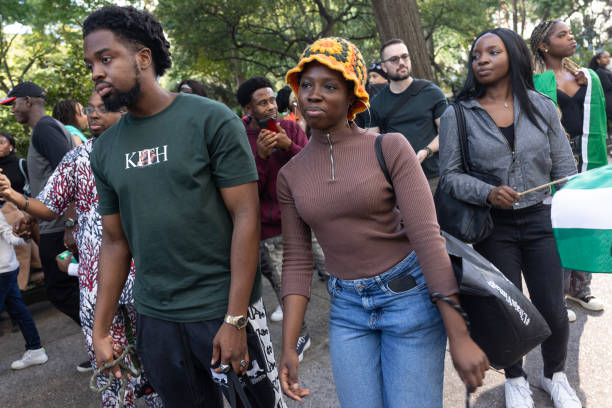In today’s globalised world, more and more Nigerian families are making homes abroad. Their children grow up in a space where two cultures meet — Nigerian heritage at home and the culture of their new country outside. This mix creates what many call “dual identities.” But what does this really mean for these children?
For many young Nigerians born or raised overseas, identity is a complex journey. They often face the challenge of balancing their Nigerian roots with the customs, language, and social norms of their host countries. It’s a tightrope walk between fitting in and staying true to where they come from.
Take Tolu, a British-Nigerian teenager, who shared with The Guardian how sometimes he feels caught in the middle. “At school, I’m ‘too Nigerian’ when I speak Yoruba or eat jollof rice at lunch. But at home, my parents remind me to hold on to my Nigerian values,” he said. Stories like Tolu’s are common — they echo the struggles of belonging and acceptance many face.
This dual identity can be a source of strength, though. It gives these children a unique outlook on life, making them bridges between cultures. They can navigate different worlds with ease, appreciating diversity in ways many others might not. Studies by the University of Oxford show that bicultural children often develop strong communication skills and adaptability.
Yet, challenges remain. Some feel pressure to meet the expectations of both sides — excelling academically to honour their parents’ sacrifices, while also wanting to enjoy the freedoms their new country offers. This can cause stress and confusion. Mental health experts warn that without support, young people can feel isolated or caught between two worlds.
Community groups and Nigerian cultural organisations in the diaspora are working hard to support these youths. They organise events, language classes, and mentorship programmes to help young people embrace their heritage proudly while thriving abroad.
As Nigerians continue to make their mark around the world, their children’s voices deserve to be heard. Recognising the realities of dual identities means creating spaces where these young people feel accepted, understood, and empowered.
At the heart of this issue is a simple truth: identity isn’t fixed. It’s fluid, evolving with experience and time. The children of Nigerian immigrants teach us that holding two identities can be a beautiful, powerful thing — a bridge that connects continents, generations, and cultures.
For those listening, their stories offer lessons in resilience, pride, and the true meaning of belonging.
If you are a young Nigerian abroad with a story to tell, share it with us. Your voice matters.




